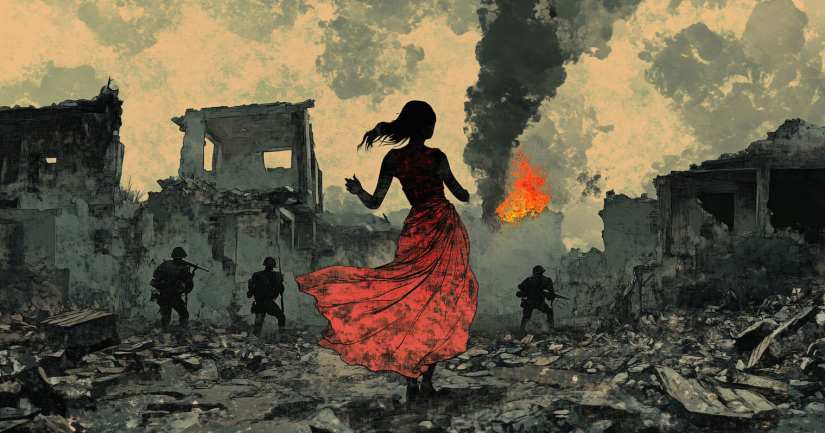
Delve into the powerful emotional arcs of Chapter 14 with The Things They Carried Quiz, capturing its haunting truths. This quiz invites you to delve deep into Tim O’Brien’s vivid narrative, where every item carried tells a story of weight and memory. As you progress, you’ll uncover the layers of emotion and reality faced by soldiers in Vietnam. The chapter’s intricate details and powerful themes will challenge your understanding and provoke thought.
Prepare for questions that will test your grasp of the characters’ burdens, both physical and emotional. Reflect on the significance of each object and story, as O’Brien masterfully intertwines the past and present. This is more than just a test of recall; it’s an invitation to connect with the human experiences depicted in the novel.
The story isn’t finished yet! Read on with The Things They Carried Chapter 15 Quiz, reflect on key themes in The Things They Carried Chapter 13 Quiz, or see how much you’ve retained with The Things They Carried Full Book Quiz.
Engage with the text and discover insights that illuminate the complexities of war and memory. This quiz will not only enhance your comprehension of Chapter 14 but also deepen your appreciation for O’Brien’s storytelling. Dive in, and allow the narrative to carry you to new understandings. The Things They Carried Quizzes: Explore Tim O’Brien’s Vietnam War stories …
What Happened – The Things They Carried Chapter 14 Quiz
In Chapter 14 of The Things They Carried, the focus is on Norman Bowker. After the Vietnam War, he drives around a lake in his hometown. He does this on the Fourth of July. He circles the lake several times. While driving, he thinks about the war. He recalls a specific night in Vietnam. On that night, his friend Kiowa died. They were in a swampy field. The field smelled bad and was wet. Norman tried to save Kiowa, but he could not. He feels guilty about this.
As he drives, he imagines talking to his father. He wants to tell him about the medals he earned. He thinks about how his father would be proud. He also imagines conversations with other people. He wants to explain what happened in Vietnam. He wishes he could tell someone about his feelings.
Norman stops at a fast-food restaurant. He orders a burger and eats it in his car. He continues to drive around the lake. He thinks about how his life has changed since the war. He feels disconnected from his hometown.
In the end, Norman does not talk to anyone about his experiences. He finishes his drive and goes home. The chapter shows his struggle to deal with memories from the war. Norman feels alone and burdened by his past.
The Things They Carried Chapter 14 – Quotes
- “War is hell, but that’s not the half of it, because war is also mystery and terror and adventure and courage and discovery and holiness and pity and despair and longing and love.” – Tim O’Brien, ‘Reflecting on the complex and contradictory nature of war.’
“A true war story is never moral.” – Tim O’Brien, ‘Discussing the nature of war stories with the reader.’
“It’s time to be blunt.” – Tim O’Brien, ‘Preparing to reveal a hard truth about storytelling.’
“Nobody listens. Nobody hears nothin’.” – Mitchell Sanders, ‘Expressing frustration over the lack of understanding about war experiences.’
“You can tell a true war story by the way it never seems to end.” – Tim O’Brien, ‘Explaining how the truth of war stories is in their endlessness and impact.’
“A true war story, if truly told, makes the stomach believe.” – Tim O’Brien, ‘Describing the visceral reality of authentic war stories.’
“It comes down to gut instinct. A true war story, if truly told, makes the stomach believe.” – Tim O’Brien, ‘Emphasizing the physical reaction a genuine war story provokes.’
“That’s what stories are for. Stories are for joining the past to the future.” – Tim O’Brien, ‘Highlighting the purpose of storytelling in connecting experiences across time.’
“Sometimes war is beautiful.” – Tim O’Brien, ‘Acknowledging the paradoxical moments of beauty found amid the horrors of war.’
